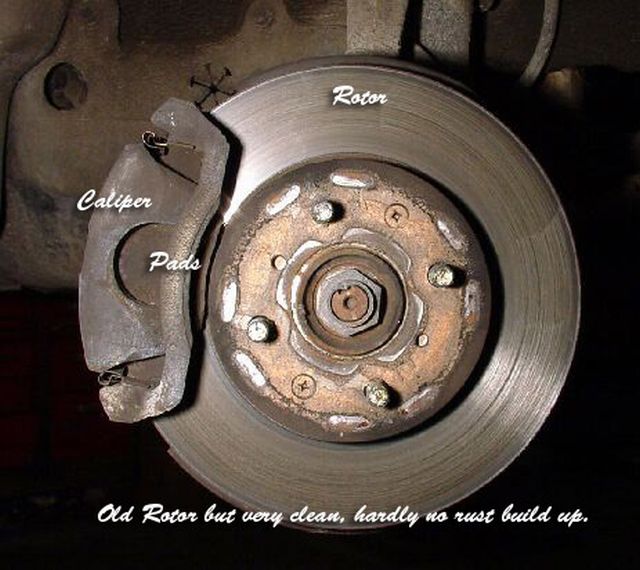You are here
Prolong life of brake job
In Canada, weather is so severe, hot, cold, and extremely cold, and City uses salt on the road.
We noticed the most of repair in brake job is related more rust problem than actual wear on pad or rotors. I noticed the some car has hardly no rust on the rotors at all even the rotors are quite old. But many other vehicle's rotors are badly rusted. Please view following pictures. You will notice the rust mark indentation is match with the disk pad shape. There are so many rust marks on the rotors surface every where. Can you recognize the pad indentation?
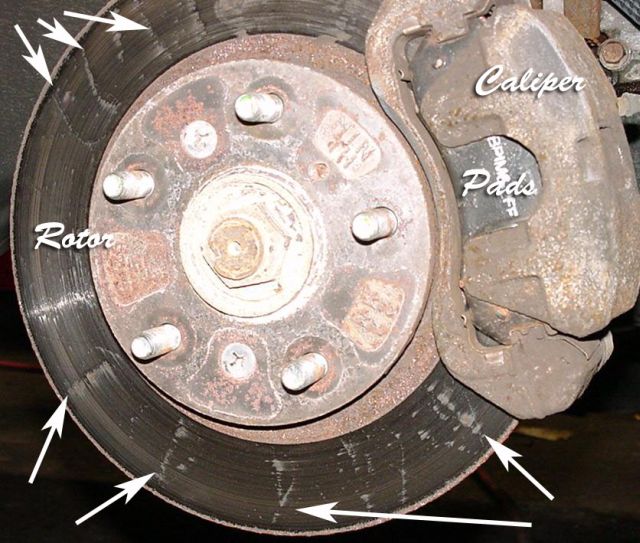
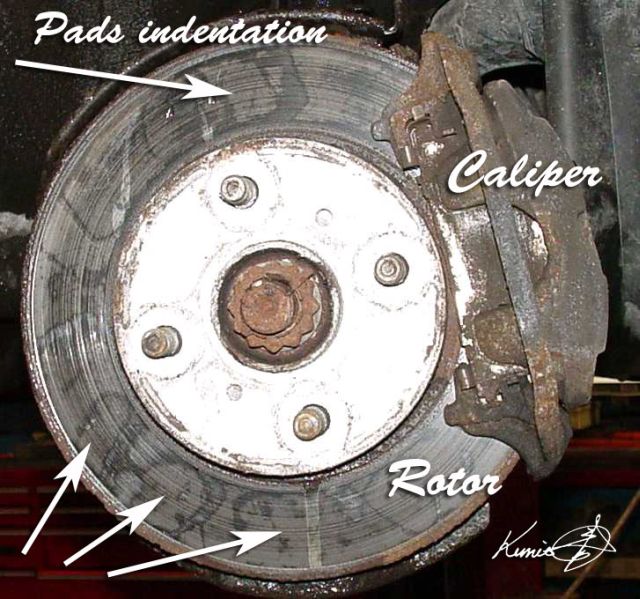
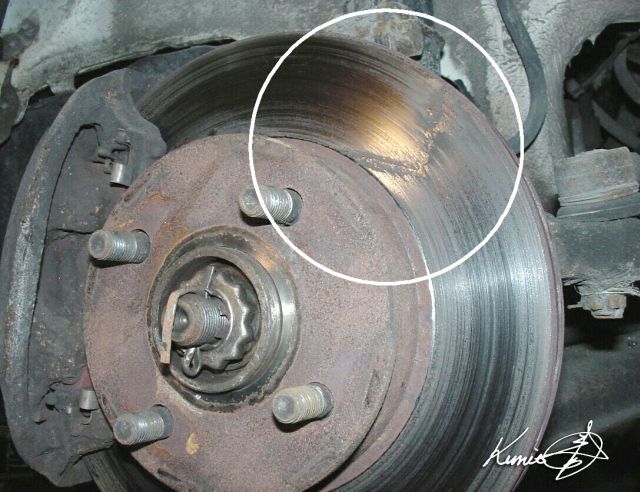
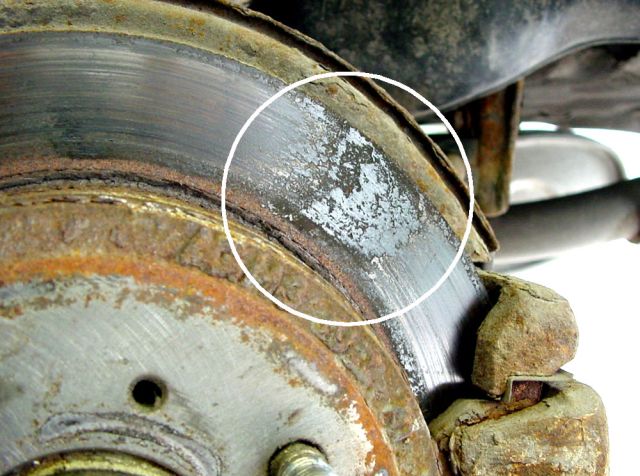
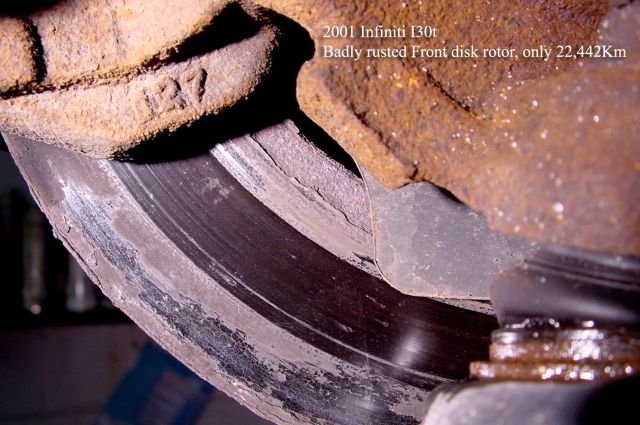
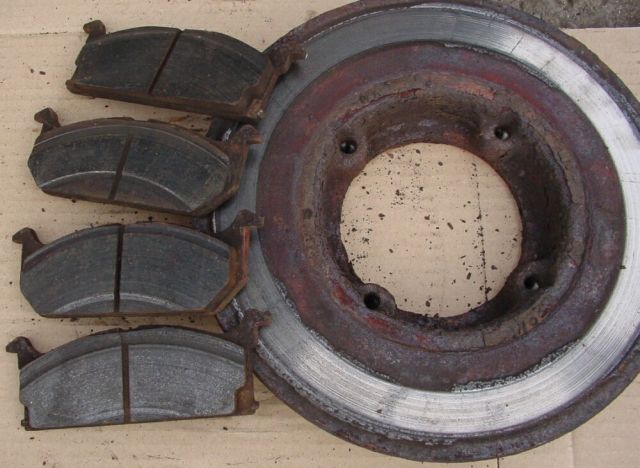
The following rotor was only 2 weeks old. This customer had the brake job done, rotors and pads were changed and couple days after he drove to airport, and left his Mazda parked for 2 weeks. Probably it was a rainy days on early spring when the plenty of salty water on the road. While the car was parked, the water trapped between pads and rotor worked on the rotor. The combination of temperature and contamination of the water/moisture started to corrode new surface of rotors. When customer came back form holiday, started drove his Mazda, the rust must have been developed rapidly. He had bad vibration and pulsation every time he used the brake. He was surprised since he had new brake job was done recently.
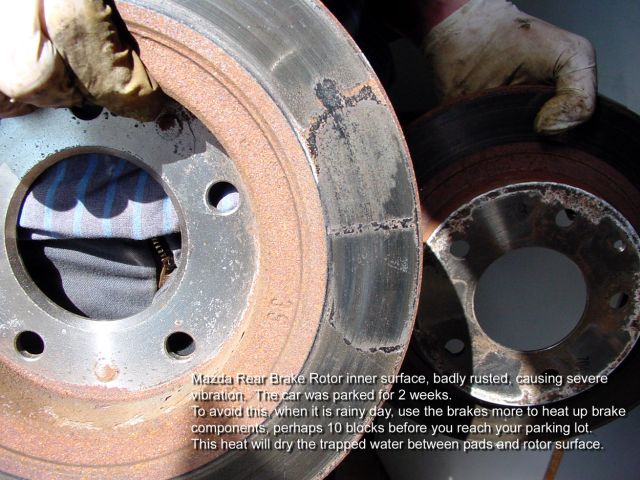
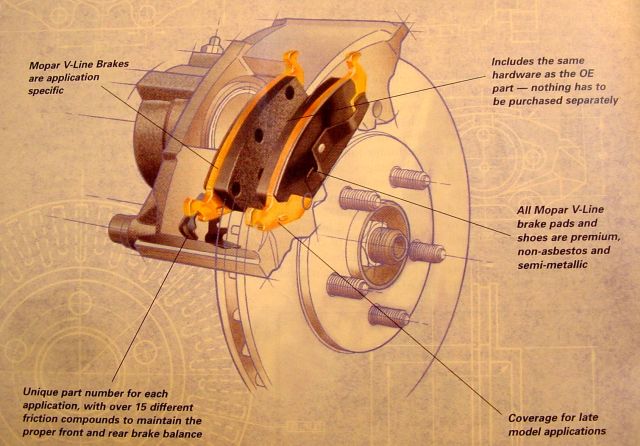
Now, here is the suggestion that may help with this issue.
Now you know the rust begins with small moisture or water trapped between pads and rotors. The best way to eliminate this is to dry the water / moisture out of rotor surface. To do this is heat up rotors.
When you use brake, it causes friction and create heat on brake mechanism.
So, when you are driving, if it's raining, snowing or a wet ground, then you must remember to heat up the brake before you park the vehicle. Before your final destination, say about 10 blocks, you start to depress the brake pedal slightly and frequently than necessary, to generate more heat in the brake system. When you reach the last destination or home, your brake is nice and warm, so any moisture or water will dry up quickly to prevent any rust.
Just picture this. If you wash glass with cold water and put to dry, then you will see water mark on clear glass surface, but if you use hot water, when it dry up there is no water mark on glass surface. This happening is similar to your brake rotor surface. Please don't forget to remember to dry your rotors on a rainy/slushy day, and to prolong your rotors' life, and also for the environmental reason. (Kunio)
